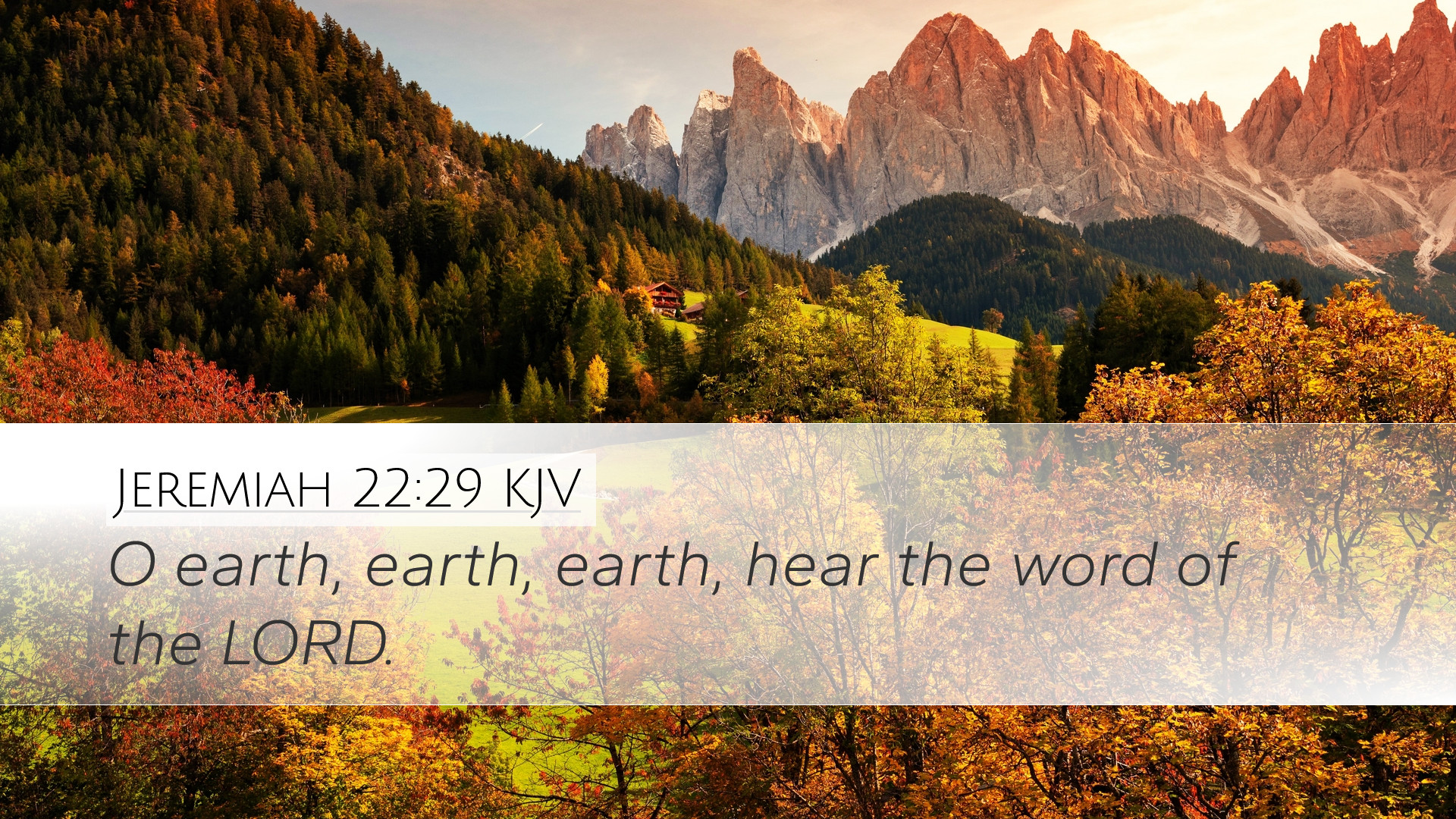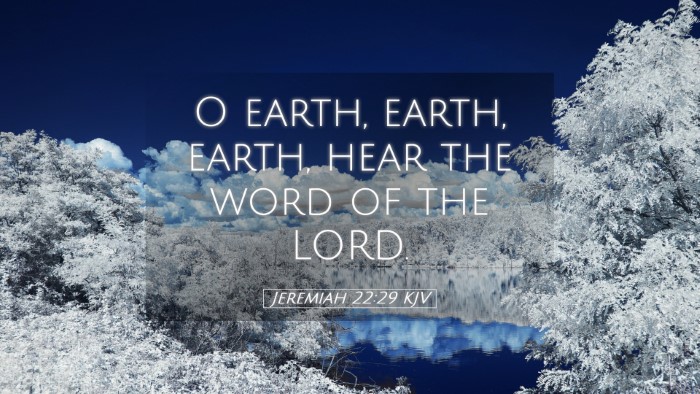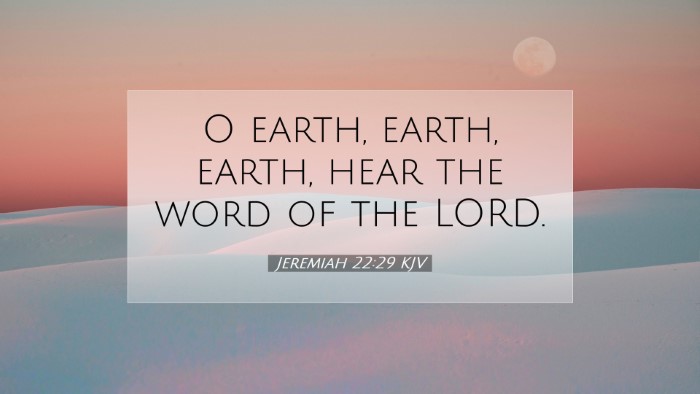Commentary on Jeremiah 22:29
Verse: "O earth, earth, earth, hear the word of the Lord!"
Introduction
Jeremiah 22:29 is a profound proclamation, calling the earth itself to attention to the divine message from God. In this verse, the repetition of "earth" emphasizes the weightiness and the universality of God's command, suggesting that this is not merely a message for the people of Israel but for the entire creation. Commentators throughout history have reflected on its theological implications, revealing layers of meaning that speak to the nature of God's authority and the seriousness of His judgement.
Theological Implications
According to Matthew Henry, this verse exemplifies God's sovereign authority over not only His chosen people but over all creation. The command for the earth to "hear" suggests that the created order is responsive to God’s will. Henry highlights the theme of divine justice, noting that when mankind fails to uphold righteousness, all of creation stands as a witness against them. This verse serves as a reminder to all believers of the accountability they carry.
Albert Barnes adds to this by discussing how this call to the earth signifies a warning of impending judgment. He interprets this proclamation as an eschatological statement, calling attention to God’s ultimate plan for the world. Barnes comments that this urgency reflects God's desire for His creation to recognize His sovereignty and respond appropriately.
Adam Clarke further illuminates this theme, suggesting that the phrase "O earth" highlights the desire for all people, regardless of their nation or standing, to heed God's word. Clarke posits that the earth, in its physicality, serves as a witness to the righteousness of God’s decrees and judgments. He points out that the heavens and the earth are often invoked in the prophetic literature to indicate the seriousness of God's covenantal promises and the weight of human disobedience.
Contextual Analysis
To fully grasp the significance of Jeremiah 22:29, it is essential to consider its broader context within the book of Jeremiah. This statement comes at a critical juncture where Judah's leaders have failed to uphold justice and righteousness. Matthew Henry underscores that Jeremiah speaks against the kings and rulers who have abandoned their duty to lead with integrity. As a result, the call to the earth represents a cosmic acknowledgment of the moral decay present among God’s people.
Albert Barnes provides additional commentary on the historical context surrounding this verse, noting that during the time of Jeremiah, there was rampant corruption and idolatry among the people. The earth is called to witness and bear testimony against these injustices, highlighting the notion that God will not allow such transgressions to go unpunished. This prophetic voice aims to awaken the conscience of the people and encourage a return to fidelity to God’s commandments.
Practical Applications
The implications of Jeremiah 22:29 extend beyond mere historical context; they resonate with contemporary faith communities. Pastors and theologians can draw from Henry, Barnes, and Clarke’s insights to convey the message that the moral responsibilities of leaders remain crucial. The echoes of this warning are relevant today as leaders must recognize their accountability to both God and their constituents.
The call to the earth challenges believers to examine their own lives and the state of their societies. Can creation hear the words of the Lord through the actions of His people? Adam Clarke emphasizes that the faith of individuals affects the broader community and indeed the world. For students of scripture, this verse can serve as a springboard for discussions on environmental stewardship and social justice, as we recognize that our actions have repercussions that extend beyond personal piety.
Additionally, this verse encourages a posture of attentiveness to God’s voice. The repetition of "earth" serves as a reminder of the magnitude with which we should approach God’s word – listening, responding, and aligning our lives accordingly. This attunement can cultivate a deeper relationship with God, inspiring a commitment to righteousness in personal and communal contexts.
Conclusion
In reflecting on Jeremiah 22:29, we see a multifaceted verse that calls for the attention of the earth to God's decree. The insights from Matthew Henry, Albert Barnes, and Adam Clarke illuminate the profound respect and reverence we should possess towards God's word. With layers of meaning regarding accountability, justice, and moral integrity, this verse serves as a powerful reminder for all followers of Christ to heed the call not only to listen but to act in accordance with God's will.


